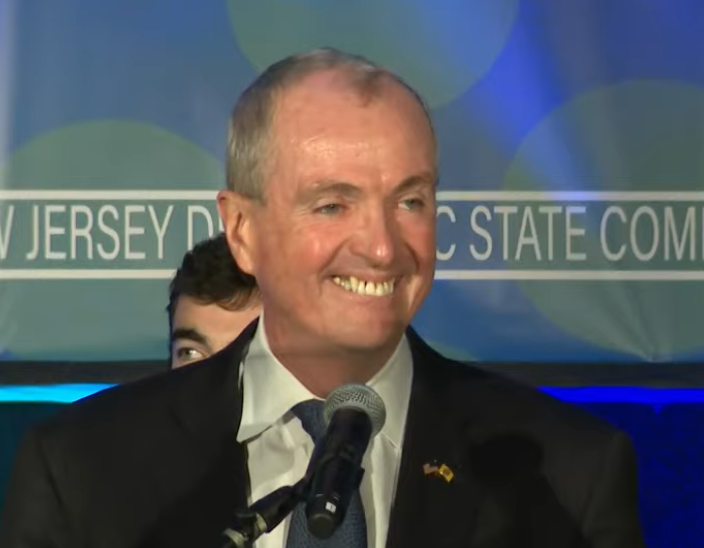Murphy and the National Left Lane Marker

If all turns out as pollsters and pundits so confidently predict, the national Democratic Party leadership will awaken the morning of Nov. 9 and gaze upon a nuclear winter landscape where their party organization once stood.
While differences over the size of Republican gains range from a relatively modest 25 seats to a blowout upwards of 65 seats, the universal consensus appears solid --- the four years of Democratic majority rule in the House of Representatives will come to a crashing end, overwhelmed by an angry American electorate fed up with an economy wrecked by out of control inflation and a sense that the Biden Administration is helpless in the face of it and other challenges as well.
Republicans regaining control of the 50-50 Senate is more problematic, but not totally out of the question.
What will inevitably follow will be a period of finger-pointing and demands for a post-election examination of what the party stands for and whether a reassessment of its fundamental principles is in order.
In soul searching, there is opportunity, a chance for those who believe they can shape the party’s future from a position of leadership while moving toward a fulfillment of their personal ambitions.
Early indications suggest that Gov. Phil Murphy is among them.
Murphy and others of like mind dismiss any suggestion they are looking toward 2024, but with a party in such dismal straits and growing speculation that Biden will not seek a second term, a context has already been established, one in which even a mild overt move toward greater recognition is construed as a sign of larger aspirations.
Murphy is fond of characterizing himself as the most progressive governor in America and his recent responses to two issues --- abortion rights and gun control --- indicate he intends to occupy, and possibly pre-empt, the lane reserved for the party’s activist left wing.
Murphy signed into law in January legislation guaranteeing the right to an abortion and earlier this week proposed significant steps beyond codifying it in law, including requiring private insurance carriers to pay for the procedure, establishing a $20 million Reproductive Health Care Fund for clinical abortion care and security and protecting anyone traveling to New Jersey to obtain an abortion from prosecution in their home state.
Opponents quickly criticized the proposed health care fund as taxpayer-funded abortion services while establishing New Jersey as a sanctuary state for those whose state of residence have imposed severe restrictions on abortion services.
While Murphy has seized the lead on the issue, the Democratically controlled Legislature is decidedly cool to his proposals, pointing out that the insurance mandate, for instance, was removed from the legislation in January to overcome opposition and secure sufficient votes for passage.
Writing the right to an abortion into state law, the leadership believes, provides sufficient protection in the event the U. S. Supreme Court overturns the 50-year-old Roe v. Wade ruling.
Approving the expansion sought by Murphy is unlikely in the current legislative session and even less so in the legislative election year of 2023.
Senate President Nicholas Scutari (D-Union), put it bluntly: “I believe it’s been settled.”
In the immediate aftermath of the mass shooting at an elementary school in Uvalde, Tex., Murphy called on the Legislature to enact a broad series of firearms control legislation, buttressing the state’s already stringent regulations --- arguably the strictest in the nation.
At the same time, in a forgivable bit of executive grandstanding, Murphy called for votes on all proposals related to sale and possession of firearms, including those that would greatly relax current laws.
It is, he said, only fair that New Jersey voters be aware of which legislators stood in favor of loosening restrictions --- standing with the gun lobby, he said --- while the tragedy of the murder of 19 fourth graders was still fresh in their minds.
He placed himself firmly in the progressive movement with respect to gun control, echoing demands for expanded background checks for potential purchasers and banning the sale of certain semi-automatic rifles and high-capacity magazines.
Sen. Scutari and Assembly Speaker Craig Coughlin, (D-Middlesex), expressed a willingness to consider additional gun control legislation but stopped short of endorsing the governor’s proposals while urging Congress to act on a national level.
On the abortion and gun rights issues Murphy has charted a course consistent with that of the party’s progressive faction and whatever the fate of his proposals in the Legislature, he’s reinforced his left of center bona fides.
He understands the restiveness in the national party, the concerns that the Administration has failed to convince the American people that he and his party deserve to remain in control.
Speculation will continue to intensify that Biden will stand down in 2024, opening the field of potential nominees from center to center-left to far left.
It is a sign as well that Vice President Kamala Harris --- normally the person considered as the heir apparent --- has been unimpressive and, to many in the party, is not presidential material.
Murphy will be among those Democratic leaders who will survey the smoking rubble on election day plus one, who will realize the Biden agenda is dead in the water and that a new beginning is critical.
He won’t be the sole candidate standing to the left. While Vermont socialist Sen. Bernie Sanders has hinted he has one more hurrah left in him, broader acceptance by the party is highly unlikely.
Murphy has laid down his marker in the left lane, assuring he’ll be a part of the discussion.
Carl Golden is a senior contributing analyst with the William J. Hughes Center for Public Policy at Stockton University.





